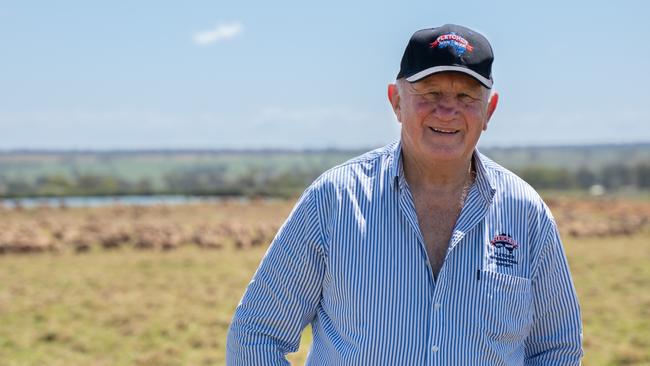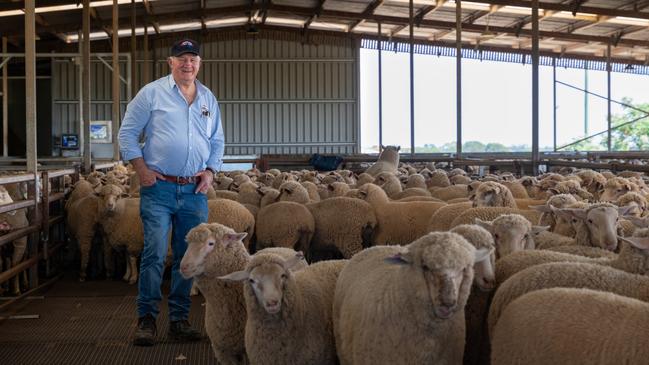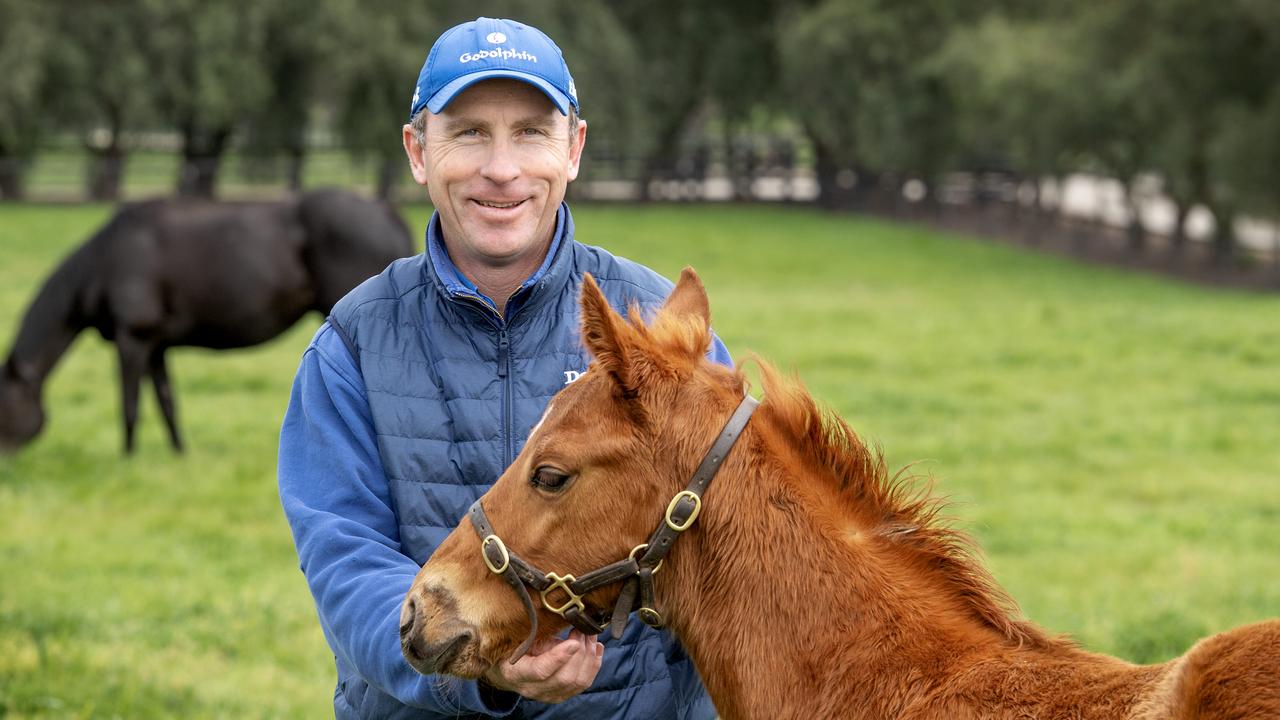Roger Fletcher on the many issues facing lamb exports
One of the nation’s biggest sheepmeat exporters believes that Covid only worsened what was an already choppy international market.

Lamb marketing being closely aligned to special events has made the shipping problems caused by Covid particularly hard to navigate, according to one of Australia’s biggest sheepmeat exporters.
Roger Fletcher, of Fletchers International Exports, which operates processing plants in NSW and Western Australia and is a major supporter of extra heavy lambs at saleyards, said the timing and placement of lamb into specific countries was often vital to achieving premium results.

“A lot of things we do in terms of marketing lamb is seasonal — events like Ramadan and Easter,” Mr Fletcher said.
“It has become very difficult to market products as deliveries have become completely unreliable due to shipping delays.
“It gets to the point where you don’t take the risk into some of the higher priced markets in case you get caught with it.”
Mr Fletcher wasn’t ‘talking down the market’ so to speak, but was commenting on questions from The Weekly Times on some of the major issues currently facing processors.
Covid remained central, he said, disrupting kill schedules and deliveries.
He cited the recent Easter period as an example of the impact of shipping on export marketing.
“When I looked at the figures, no lamb went into France for Easter as it was too risky,” Mr Fletcher said, explaining the situation in terms of Easter eggs.
“If you’re selling Easter eggs and you don’t get them into the shops on time how do you think you will go — it is the same with lamb for these special events.”
The latest export figures from the Department of Agriculture, Water and the Environment has no Australian lamb landed into France during April, and shipments so far this year are tracking 35 per cent below last year’s levels.
Mr Fletcher provided some other real examples of some of the problems they had encountered with shipping.
He said they had one client who had been on a schedule of one container of sheepmeat per week.

“Then there was all these shipping delays and he ended up getting eight containers in one week and do you reckon he could pay us for all of them, no,” Mr Fletcher said.
“So he got all this meat dumped on him which he couldn’t handle and basically it wrecked him as a customer.
“It used to be that you could set up a regular shipping schedule to clients anywhere in the world and be confident it would work, now you can’t rely on it at all.”
Another issue the company had faced was a faulty chilled container as the shipping industry faced up to a shortage. It meant a container of meat product was compromised, and the company had to quickly make alternative arrangements to salvage it.
Mr Fletcher said Covid had just exaggerated multiple issues in the sea-freight industry, such as union disputes at ports, ageing equipment and a lack of modernisation.
“Part of the problem goes back to when we had the global financial crisis and shipping companies went broke so investment in the industry stopped and little was updated or modernised,” he said.
On the issue of freight costs, he said the volatile pricing made it difficult to commit to forward price deals for lamb.
“There has been rapid rate rises and you really don’t know what price is coming — everyone is taking a hell of a risk selling forward at the moment,” he said.
The latest information from the freight sector suggests prices have eased modestly from record highs, due to less demand stemming from the lockdown of many Chinese cities which has slowed the manufacture and export of goods from China.
But this could be short-lived, particularly if diesel and oil prices escalate from the ongoing war between Russia and Ukraine.
Mr Fletcher said labour shortages was the other key issue facing processors in Australia, and unfortunately despite government schemes such as special ag visas there was “no quick fix” to the situation.
He said the company’s West Australian plant was being hit hard this autumn as Covid infections in the west ramped-up after the state reopened its borders.
“Covid has had a huge affect on production,” he said.
“When you’ve got a factory and there are days when 30 people might not turn up from the one division like packing what can you do, you can’t keep slaughtering stock,” Mr Fletcher said.
But he said the lamb market had some sound fundamentals, with the meat now more widely accepted around the world.
“If we can handle the labour side and the shipping side lamb is in a very good position as the marketing and consumer awareness of lamb has come a long way,” Mr Fletcher said.




